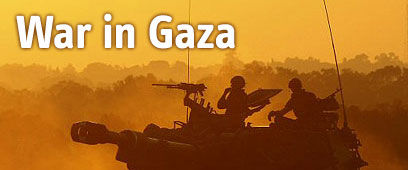

Dan Shiftan
Photo: Courtesy Haifa University
Neither Hamas nor Gaza or the Qassams are the target of the Gaza war or the criteria for its success. The war in Gaza is over the fate of regional radicalism and the myth of the Muqawma ("resistance".) This is well understood in Tehran, Beirut, and Damascus, and also in Cairo and Amman. It would be good for us in Israel to also weigh our moves in the framework of this broad perspective.
In the second half of the previous century, the military struggle against Israel reached a dead-end. This perception started sinking into the Arab public's consciousness in the Six-Day War. It was institutionalized when the peace treaty removed Egypt from the cycle of active confrontation, when the superpower that armed the Arabs collapsed, and when Iraq's military power was eliminated. Ever since then, radical elements in the region have been seeking a replacement, both "above" the conventional; threshold (nuclear weapons) and "below" it (terrorism.) They assume that the home front is Israel's Achilles Heel.
When a proper response for suicide attacks was found, in the form of the security fence and operation Defensive Shield, the radicals turned to rockets. The Second Lebanon War illustrated that there is no military solution to rocket attacks on the home front, with the exception of permanent Israeli presence within the territory and population that hosts the threat. As Israel cannot and does not wish to control Lebanon and Gaza, let alone Syria and Arab states, the radicals reached the conclusion that they possess the ultimate weapon that would embitter Israel's existence and present it as helpless.
The entrenchment of such perception in the Arab world poses a strategic threat to Israel and the region. Responsible regional regimes, which wish to avoid confrontation with Israel, can defend their policy only if they can showcase the intolerable results of such confrontation to the Arab public and its radical elites. Israel's image as helpless may force these regimes, as happened in the past, to lend their hand to provocations that cumulatively tend to escalate into war.
The war in Gaza was aimed at preventing the entrenchment of the perception that the rocket resistance in conjunction with Islamic zealotry is the ultimate weapon Israel cannot cope with. Yet we can and should prove that even though Israel has no operative solution for it, it does possess a strategic response to this challenge.
The strategic response is political willingness (in addition to military capabilities) to sow disproportional destruction and hurt the assets that are dear to those who fire rockets at Israeli population centers. The main objective is not to hit the last rocket, but rather, to enforce a fundamental change in the Muqawma's cost-benefit equation by dramatically raising the cost.
The urban legend regarding the infinite determination of Arab radicals was shattered in the 2002 Defensive Shield operation, and even in Hizbullah's recoil from confrontation in the wake of the missed-out Lebanon War. Now is the time to prove the futility of this myth in Gaza as well.
The results of the war will not be determined by the nature of the diplomatic agreement that ends it, but rather, by Israel's willingness to pulverize Hamas during the war, and especially to respond wildly to the first rocket launched after the war; for example, by assassinating Hamas leaders after they emerge from their trenches.
Destruction in Gaza contributes to the prevention of war with Lebanon and Syria, assists Egypt and Jordan in fighting radical elements, and signals Israel's limits of restraint to Iran.
Dr. Dan Shiftan heads the National Security Studies Center at the University of Haifa















